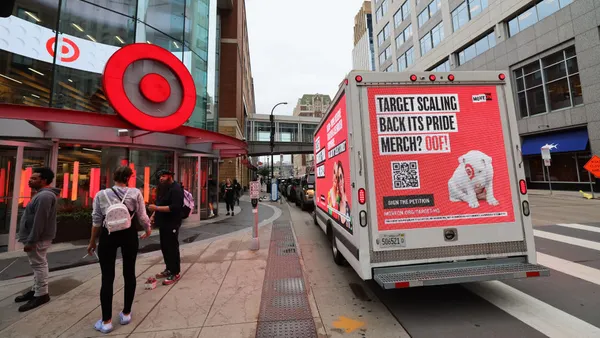Dive Brief:
- U.S. brands remain "mediocre" with regards to the of quality customer experiences, according to findings from Forrester's U.S. 2018 Customer Experience Index made available to Marketing Dive. The index measures how leading brands across 19 different industries build loyalty through customer experience (CX).
- No brand has risen to the top of the rankings and continued to improve, which Forrester maintains is an indication that U.S. brands are lacking a CX leader for the third straight year. Navy Federal Credit Union ranked No. 1 out of 287 brands. USAA took the next four spots across different industries, after being on top last year. Trader Joe's, Edward Jones, Lexus, Home Shopping Network and Huntington National Bank rounded out the top 10.
- Banks and luxury auto manufacturers generally have the best CX, while the federal government and internet service providers had the worst. Most of the industry frontrunners were repeat in the report. The top 5% of brands remained static.
Dive Insight:
Customer experience is paramount to building brand loyalty, but the new Forrester report suggests that many American brands' CX strategies are poor, and that even better performers have become stagnant. Delivering high-level customer experience is often hampered by brands lacking a seamless strategy.
CX often encompasses both sales and marketing, but a 2017 report from the CMO Council, SAP Hybris and SellingPower magazine found that there can be a disconnect between the two teams. Only 7% of sales leaders and 9% of CMOs view themselves as owners of CX. This disconnect and lack of leadership could be contributing to the stagnation.
Emotion is the biggest driver of brand loyalty, according to Forrester's findings. The top brands provided 22 emotionally positive experiences for every negative one, while the bottom 5% offered two positive experiences per negative one. The emotions most likely to boost brand loyalty were appreciated, confident, grateful, happy, respected and valued, while feelings of annoyance, disappointment and frustration can drive consumers away.
Marketers can create emotional connections with consumers through personalization. Consumers are growing to expect tailored messaging and experiences from their favorite brands, and 43% are more likely to purchase from brands that personalize experiences, according to a 2017 Accenture report. But, not all personalization efforts land with consumers, as some feel that campaigns can be irrelevant or even creepy.












